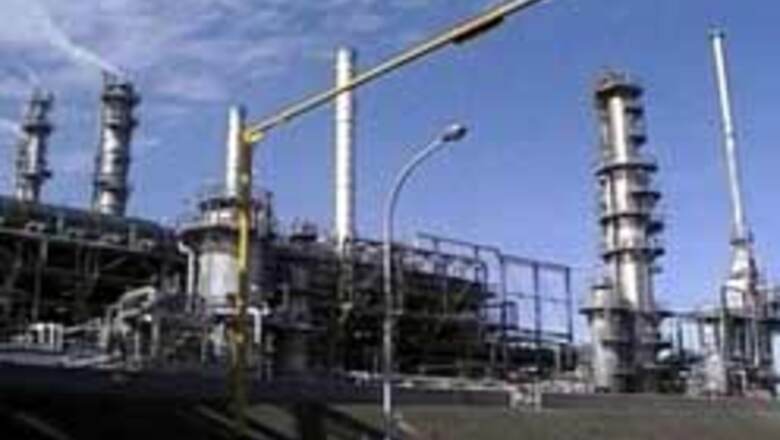
views
New Delhi: Oil fell over $1 to below $56 a barrel on Monday, dropping to near its lowest in almost two years after a meeting of the Group of 20 major economies ended with few actual proposals on how they would combat a global recession.
News that the Organisation of the Petroleum Exporting Countries (OPEC) may wait until its meeting on December 17, instead of the end of November, to make a decision on whether to cut production targets again, also weighed on prices.
US light crude for December delivery fell $1.28 to $55.76 a barrel by 0109 GMT, after having fallen earlier to $55.60, just off the $54.67 a barrel low it hit on Thursday, its weakest since January 2007.
London Brent crude fell 85 cents to $53.39.
"G20 leaders may have urged fast action to deal with the global financial crisis, but concern over the weakened international economic outlook still weighs heavily," said David Moore, a commodities strategist at the Commonwealth Bank of Australia.
Governments from Washington to Beijing agreed on Saturday to a raft of fiscal and monetary steps to rescue the global economy but it was left to individual governments to tailor their responses to their particular circumstances and troubled industries.
Although the package of economic rescue measures agreed by the G20 countries sought to settle volatile markets and calm consumer anxieties about leaders' ability to work together, the proposals did little to alleviate investors' fears.
On Monday, US stock index futures slipped, while the yen and the US dollar rose as investors turned more risk adverse on assessments that the meeting yielded no concrete moves to prevent the world from sliding into a deep recession.
For more on the G20 summit in Washington, click on
RECESSION
The worst financial crisis in 70 years has pushed a growing number of countries into recession, heightening fears of a sharp slowdown in near-term world energy demand and accelerating oil's tumble from its July peak of over $147.
Japan, the world's second-biggest economy, shrank 0.1 percent in the third quarter, marking its first recession for the first time in seven years and following other industrialised economies -- including Italy, Germany, Hong Kong and Singapore -- into recession as exports were hit by weakening global demand.
Oil fell over 2 percent on Friday after news of a euro zone recession and data showing a record decline in US retail sales stirred concerns of a further drop in fuel demand.
OPEC may have to wait until December to take action to reach a preferred oil price range of between $70-$90 a barrel because the effect of its latest cut is not yet clear, the group's president said on Sunday.
Chakib Khelil told a press conference that he saw a meeting of OPEC ministers in Cairo on November 29 as more of a brainstorming session that might formulate recommendations for action at OPEC's gathering in Algeria on December 17.
The continuing fall in the oil price has prompted several OPEC members to call for a further cut in production as they face reduced revenues and a struggle to finance domestic projects.
Iran wants OPEC to cut oil output by a further 1-1.5 million barrels per day (bpd) when it meets in Cairo later this month, while Kuwait, Yemen and Libya have also voiced concern about the low oil price.


















Comments
0 comment